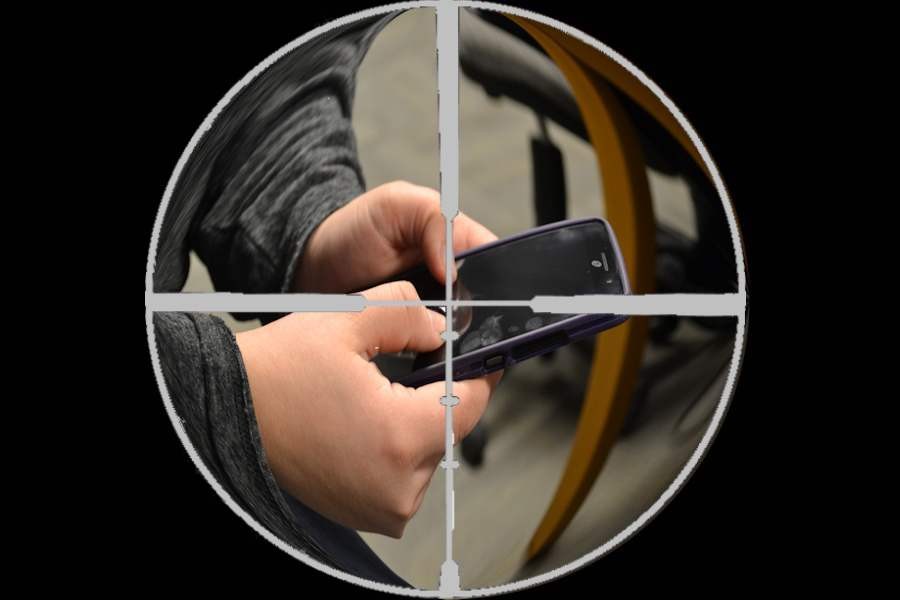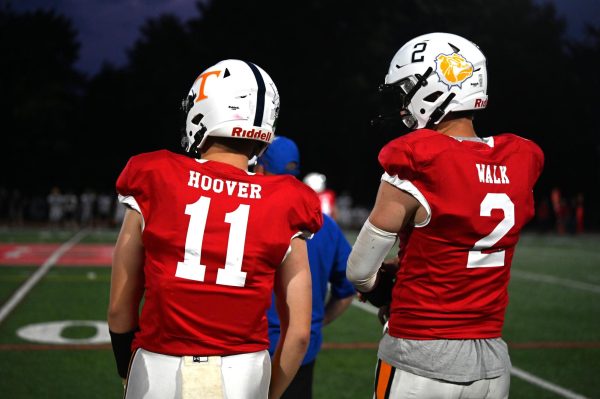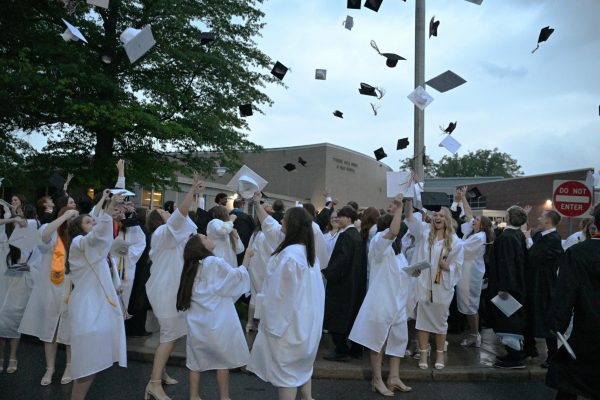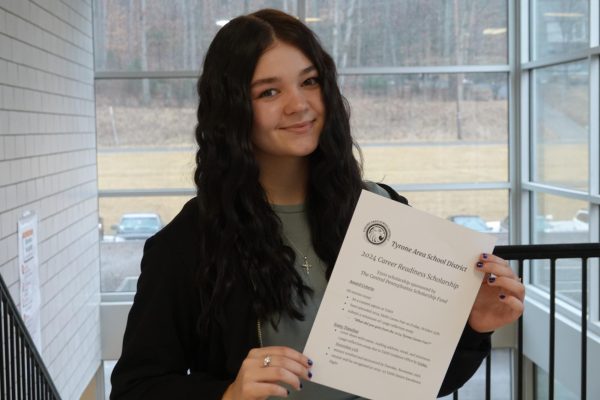TAHS Cracks Down on Cellphone Use During the School Day
As a result of increased inappropriate activity during school hours, last week the Tyrone High School began cracking down on cellphone use.
“This is not a new policy, but we became a little complacent with enforcing it and as a result we had an increase in issues throughout the school community,” said Dean of Student Luke Rhoades.
“There was an increase in cell phones being used for non-educational purposes. We have had a number of issues with bullying during the day by using Snapchat and other social media,” said Rhoades, “In addition, we have had reports of students cheating by taking pictures of tests and sending them to other students.”
According to the student handbook, the consequences for using cellphones during the school day are:
- First offense: The phone will be confiscated and turned in to the office and can be picked up at the end of the day and a detention will be assigned.
- Second offense: The phone will be confiscated and turned in to the office. This will also result in two after school detentions and the phone will only be returned to a parent or guardian.
- Third offense: The phone will be confiscated and turned in to the office. This will also result in an in-school detention and the phone will be returned to a parent or guardian and it can not be brought back to school.
Many students were unhappy the stricter enforcement, with the most vocal opposition coming from members of the senior class.
The seniors are the only class at TAHS that does not have school issued Chromebooks, which are web browsing laptops that have been phased in over the past three years. As a result, many of them have relied on using their cellphones in class.
Senior Angela Wilkins is very upset by the cellphone ban. “As a senior, I believe the stricter cell phone policy is very unfair. Underclassmen have the opportunity to use their Chromebooks which gives them an advantage over the seniors who actually use their phones as a tool,’’ stated Wilkins.
For some students though, it’s more than just the technology. “I have to get a hold of my Dad several times a day to check on him. He has cancer. I have to text him to see if he’s up, if he took his meds and how he is feeling. The kids with Chromebooks have just as much freedom with a Chromebook as I would with my phone,” said senior Ryan Stringer.
Along with personal reasons, students also cited educational reasons for why students are upset with the restrictions. According to senior Allison Wilinski, since many educationally appropriate websites are blocked on the Chromebooks she often has to use her phone for research.
“I take a college course here at school that is taught by a college professor and we were restricted access as well,” said Wilinski, “It’s absurd because we use our devices to look up research and the school still doesn’t trust us. There are six seniors in that class and our professor can easily supervise. I don’t feel the people who made the rule actually understand the impact it has had.’’
However many students agree that the policy was being abused and too much non-educational use of cellphones was happening. “I understand that cell phones can be a hindrance on education while teachers are teaching. I agree with the administration that students should have the respect to listen to the lecture,” said senior Erika Voyzey.
At a faculty meeting last Thursday faculty and administration discussed the issue of using cellphones for educational purposes. Several teachers brought up features only available on smartphones that students have used in their classes. After some discussion, it was decided that the enforcement of the rule would be modified to allow for very limited in-class use. Smartphones can be used in a classroom only with specific teacher approval and only if a feature is not available on a Chromebook or other device and the teacher’s lesson must specifically include the reasons for their use.
“I’m satisfied with the policy as it is now. I agree that enforcement of the policy had become much too lax, myself included. We need better enforcement because phones were clearly causing problems during the school day, but occasionally students do use their phones for legitimate educational purposes,” said high school teacher Todd Cammarata.
With the restriction on smart phones also came a restriction on listening to music on these devices. Although the grades from ninth through eleventh currently have Chromebooks, they do not have as much freedom as others think. One of the new rules is not allowing music to be played through a cellphone, even if you have headphones. YouTube, the most used website for music, has been blocked on the school’s computers. This is another reason students are unhappy with the policy.
“Music helps me focus a lot better especially when my classmates are being annoying,” said a sophomore.
‘’If we are not allowed to use phone during school, other staff members should not be permitted either’’ commented junior Josh Maceno.

Laid back and easy going describe senior Toni Burns. In her third and final year in Eagle Eye, Toni hopes to make a lasting impact on the group. Toni...

As a second year Eagle Eye staff member and first year News Editor, junior Jaylon Beck seeks to expand Tyrone’s knowledge of their own FFA chapter....













Eric Hartsock • Mar 18, 2016 at 1:07 pm
I just don’t understand why this is even a thing. The school board is gonna have to realize that we live in a world built on technology. Its how we look stuff up, answer questions that we don’t know about, and how a business is run. I bet this school staff members use technology every day, and they don’t get told about it. I believe that the school needs to think better on their choices on runs before throwing it on their rule book. Look at today’s world and you will see technology used everywhere!
Aaron Brown • Mar 18, 2016 at 9:33 am
I dont completely disagree with the rule but I believe that we as students should be allowed to use our cellphones during lunch, and in studyhall to check on things, and I also disagree with the music policy because pandora and youtube are both blocked on the chromebooks. My gram is currently in the hospital, and I have to worry all day that she is okay, as I cannot get any updates on her on my cellphone
Alexa Beck • Mar 15, 2016 at 2:55 pm
I am a senior and I use my phone for all of my work. I do not have a working computer at home and it is impossible for me to do my work because I cannot access my school stuff online. It is unfair that I can’t use my phone because other people had to ruin it. I am now failing 3 classes because I can’t access anything. So I think it should be less strict for the seniors or at least do the decency to provide the seniors a chrome book to use at home. The seniors are being excluded with everything this year and quite frankly it is ruining my last year at TAHS.
Connor Gority • Mar 16, 2016 at 1:02 pm
Couldn’t agree more. Adding to this, what would happen if something were to happen to someone close to you. You’re family calls, but you have no way to know about it. What if your parent(s) called to tell you this, but didn’t need the school to know, the what? I think that we should have our phones if a personal emergency were to happen.